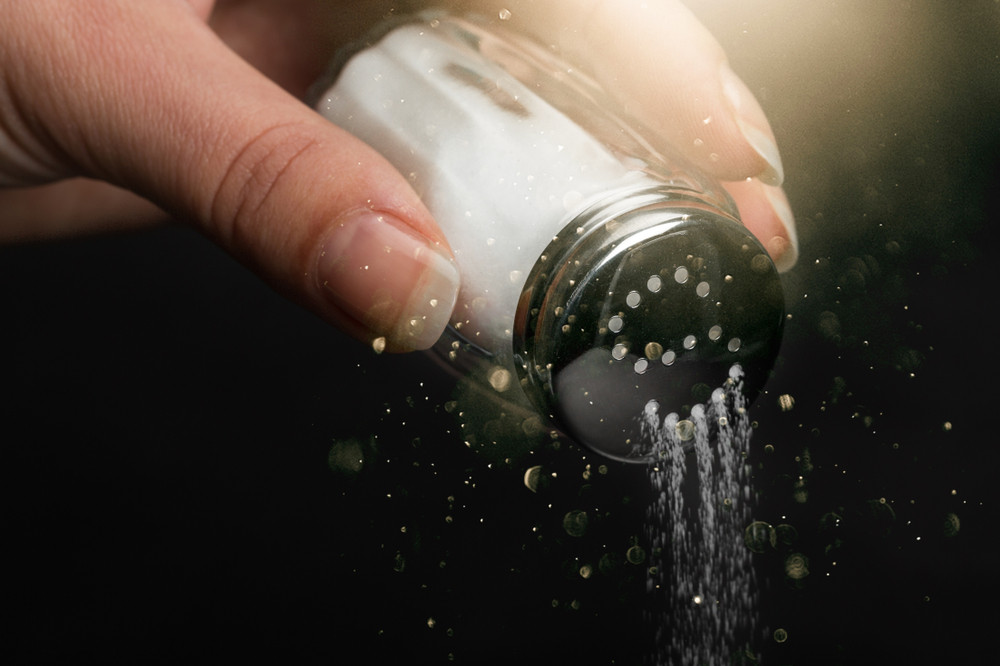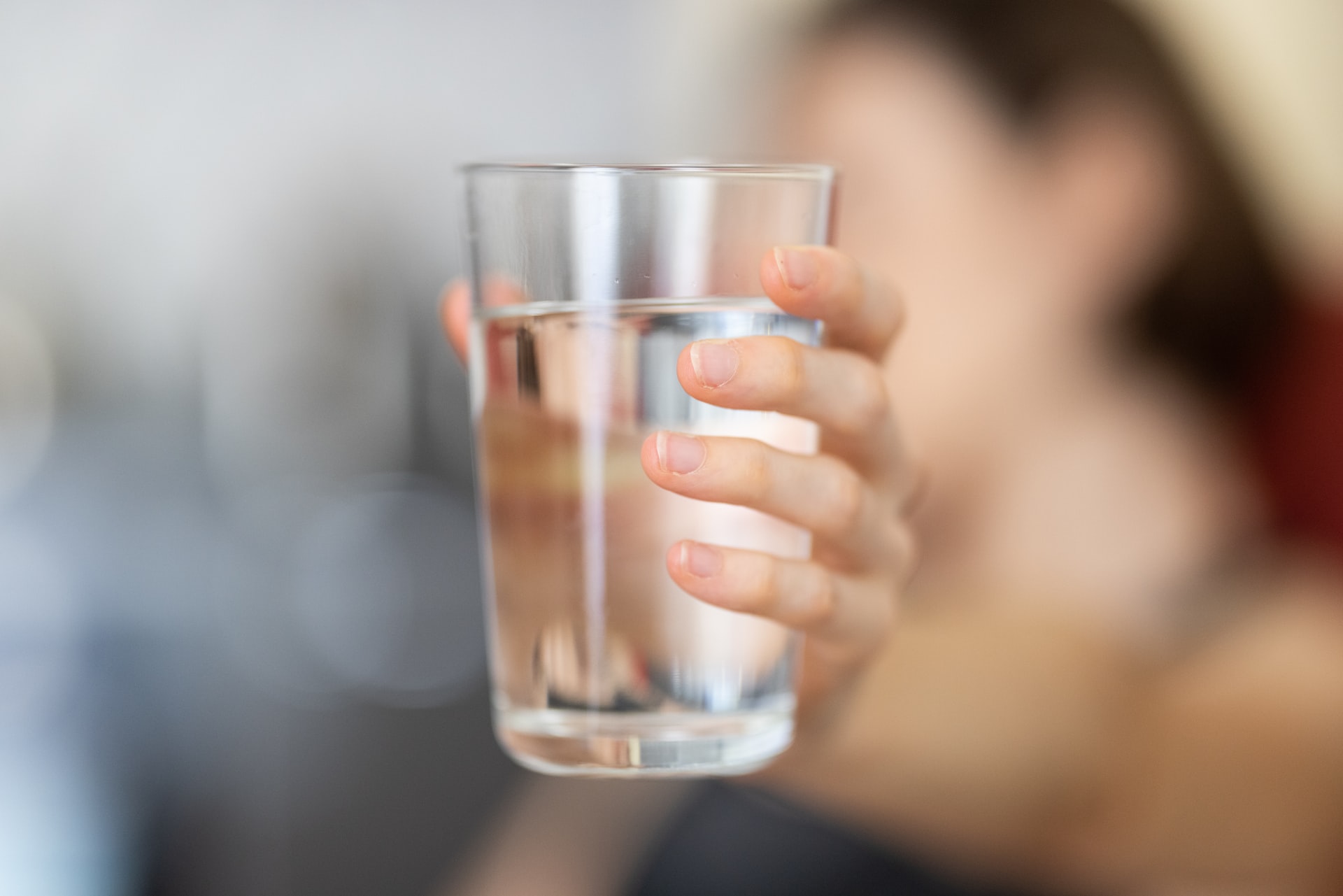Sodium & High Salt Diets: A Correlation Between Eating Salt And Weight Gain?


If you’ve already cut out sugar, lowered your calorie intake, and started exercising, but still finding it tough to drop the pounds, do you ever wonder if salt and weight gain are linked? Fat loss can be a real battle, and high salt intake may be sabotaging your diet plans.
Simplicity has all but disappeared when it comes to knowing if salt is okay to consume, and how much. The truth is salt and weight gain can be linked, but probably not in the ways that you think.
Here is a synopsis of the process of how a diet of high salt and weight gain can be related.
Salt Has No Calories
Like all natural foodstuffs, salt can be good for you. We’ve also learned that natural sea salts such as Himalayan rock salt, and Celtic sea salt are better for our health than regular table salt.
Owing much to the fact that they contain more beneficial minerals, sea salts are unrefined, and unprocessed, having all their additional elements still present. (12)
Sea salt is a source of electrolytes, which can prevent muscle cramping during exercise, containing sodium, magnesium, potassium, and calcium – all of which you need for great health. (13)
Salt in general also supports a healthy nervous system by regulating water flow throughout the body, and pink Himalayan rock salt in particular, can even promote blood sugar health, and promote a healthy PH in our bodies’ cells. (12)
With salt and weight gain, the problem isn’t calories. Salt has no calories at all. Consuming a lot of salt can cause you to gain weight temporarily because it causes your body to retain water. (5)
Excessive salt consumption increases thirst. The extra fluid consumed by your body is used to dilute the excess sodium that your body is unable to excrete quickly enough.
However, your urine volume remains constant, indicating that the extra fluid remains in your body. As a result, a sudden increase in sodium intake causes you to gain some fluid weight. (5,7)
Salt, The Trickster
A high salt diet may also make the body resistant to leptin, a hormone responsible for preventing hunger and making you feel full and satisfied, according to research in mice. (6)
Salt-rich diets may also indirectly cause you to gain weight because they often contain large amounts of ultra-processed foods. Highly processed foods are less satiating, which can ultimately cause you to eat more calories and gain weight. (4)
When equal in calories, a high salt diet won’t cause you to gain or lose more body fat than a lower salt one. (8)
Foods that tend to be higher in salt: snacks, chips, fast food, pizza, fried foods, processed foods, restaurant meals, condiments, even bread, are also high in calories. These foodstuffs are notoriously high in calories (and salt), sometimes packed full of additive ingredients, and also lacking essential nutrients. (4)
So if your diet contains a lot of these highly processed foods, it’s likely your stomach feels less satisfied and full than it otherwise might, ultimately causing you to eat more calories and gain weight
Midnight Sodium Run
If you have nocturia, a condition in which you wake up several times during the night to urinate, your sodium intake could be to blame. (1)
In one study, when those experiencing frequent night-time urination who also consumed a high-sodium diet reduced their sodium intake, they reported a reduction in nightly trips to the bathroom, and an increase in quality of life from better sleep habits. (3)
Although it may sound counterintuitive, drinking lots of water during meals, and throughout the day, can help to flush sodium from your body, causing you to urinate less during the night. (9)
A night of poor sleep can cause weight gain, affecting hormones that regulate hunger — ghrelin, and leptin. That lack of sleep can also lead to fatigue, and can result in less physical activity, making it more likely for you to gain weight. (10,11)
For Your Best Self (And Blood Pressure) Cut Back On Salt
Unfortunately, many peoples’ salt habit fails to meet the government recommendations of less than 2,300 mg per day—that’s equal to about 1 teaspoon of table salt! (4,8)
Cofactors such as obesity, hormones, age, and lifestyle further muddy the waters when trying to conjure up a clear picture of what salt intake may or may not be doing to our bodies.
If you want to give your body what it’s been craving while remaining healthy, why not consult an expert in weight loss? With step-by-step help, you will be able to crush your goals and beat your cravings for good.
Sources:
- https://www.urologyhealth.org/urology-a-z/n/nocturia
- https://health.clevelandclinic.org/salt-and-sleep/
- https://www.sciencedaily.com/releases/2017/03/170327083711.htm#:~:
- https://www.fda.gov/food/nutrition-education-resources-materials/sodium-your-diet#
- https://pubmed.ncbi.nlm.nih.gov/28614828/
- https://www.ncbi.nlm.nih.gov/pmc/articles/PMC5866545/
- https://www.ncbi.nlm.nih.gov/pmc/articles/PMC3934330/
- https://www.healthline.com/nutrition/does-salt-makes-you-fat#bottom-line
- https://www.ncbi.nlm.nih.gov/pmc/articles/PMC5760509/
- https://www.ncbi.nlm.nih.gov/pmc/articles/PMC3632337/
- https://www.mayoclinic.org/healthy-lifestyle/adult-health/expert-answers/sleep-and-weight-gain/faq-20058198
- https://www.healthline.com/nutrition/pink-himalayan-salt
- https://www.webmd.com/pain-management/ss/slideshow-muscle-cramps-foods









